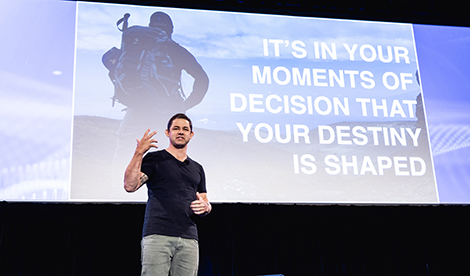

Blog

President’s Blog: A shared story, 20 years on from Bali bombings
Thursday October 6, 2022
My work in the public sphere is focused on burns surgery, while the cosmetic side of plastic surgery makes up my private work.
As I explained in a cover story from Medicus in July 2021 that introduced me as the then new AMA (WA) president:
“The two balance each other; it’s basically yin and yang.
“Burns is in a team environment and involves a lot of teaching. It is the heavily clinical aspect of plastic surgery in that I’m dealing with critically ill patients; the private side of things is more skill-oriented.”
Just short of 20 years ago I was hyper focused on my public role: specifically, as it related to the 2002 Bali bombing that led to the deaths of more than 200 people.
Professor Fiona Wood and I commandeered four theatres at Royal Perth Hospital after assessing the intake from the bombing.
“We ran that with the assistance of all the other medical colleagues and health professionals at RPH and basically just put our shoulders down and didn’t come back up again until the work was done,” I told Medicus.
“What it taught me was that when medical administration and healthcare professionals work in unison for a common goal, you can pretty much achieve anything.
“Now, that was a compressed healthcare delivery model that worked brilliantly because it was purely based on quality outcomes for the patients.
“There was also no interference from any other aspects of politics or bureaucracy.”
Phil Britten is a Bali bombing survivor. His story is one of resilience, strength, perseverance and empowerment. He believes that as humans we have the power of choice, and in your moments of decision your destiny is shaped. Twenty years on from the Bali bombings, he shared his story as a keynote speaker at MEDCON22, the AMA (WA)’s highly successful inter-college medical conference that was held in July.
Phil was at the Sari Club in Bali on 12 October 2002. He was there with his best mates; it was hot, it was crowded, the music was loud. At age 22, Phil was struggling with a decision: to pursue a footy career or stay with his mates. Advice from a friend followed: ‘Phil, always take your opportunities and most importantly, always follow your heart’ – and so he decided he would follow his childhood dream.
Moments later Phil found himself thrown into the air as a bomb exploded. Everywhere there was nothing but flames, darkness and destruction – obstacles that can feel impossible to overcome. His mind drifted – to regret for all the things he hadn’t yet achieved in his life and might never experience.
“It was in that moment, the emotion that I had turned into determination that I never knew I had,” Phil explained.
“Each and every one of us has an untapped strength that we never knew we had, until we need it.”
Phil escaped the Sari Club that night. He suffered burns to 60 per cent of his body, lost teeth – and lost seven of his closest friends.
“I realised even after surviving a terrorist attack, I had an even bigger battle to face,” he said.
“It’s a battle that we all face, and that’s life. Life itself. No one is absent of life’s challenges.”
Phil spoke of a time when he wished he’d died that night, and recounts how difficult integration back into society was.
He cites his grandmother as the person who helped him re-route his life by having him talk about his experience, and so for the first time he cathartically shared his story at a local Lions club.
After this event, Phil decided to no longer remain the Phil Britten he was.
“I had to learn to become the Phil Britten that I am,” he said.
“Not the Bali bombing victim, but the Bali bombing survivor.
“I chose a different story.
“Sometimes in life we think what’s holding us back is other people, or circumstance, but what’s really holding us back is ourselves.”
Today he empowers others to harness the skills they need to be able to face challenges with strength, resilience and perseverance. He has led survival treks in locations such as the Kokoda Track and Mount Kilimanjaro, working with people to give them the mental, emotional and physical belief that they can tackle any challenge; as well as working with remote communities to provide people with the skills they need to live a better life. And along with successful martial arts schools, he teaches defensive tactics to military, law enforcement, nurses and security guards on how to deal with disruptive people.
With a sombre anniversary imminent, we send our thoughts to those dealing with the aftermath of this atrocity.
Medicine matters. The human response to challenges of all kinds in the end matters more.

